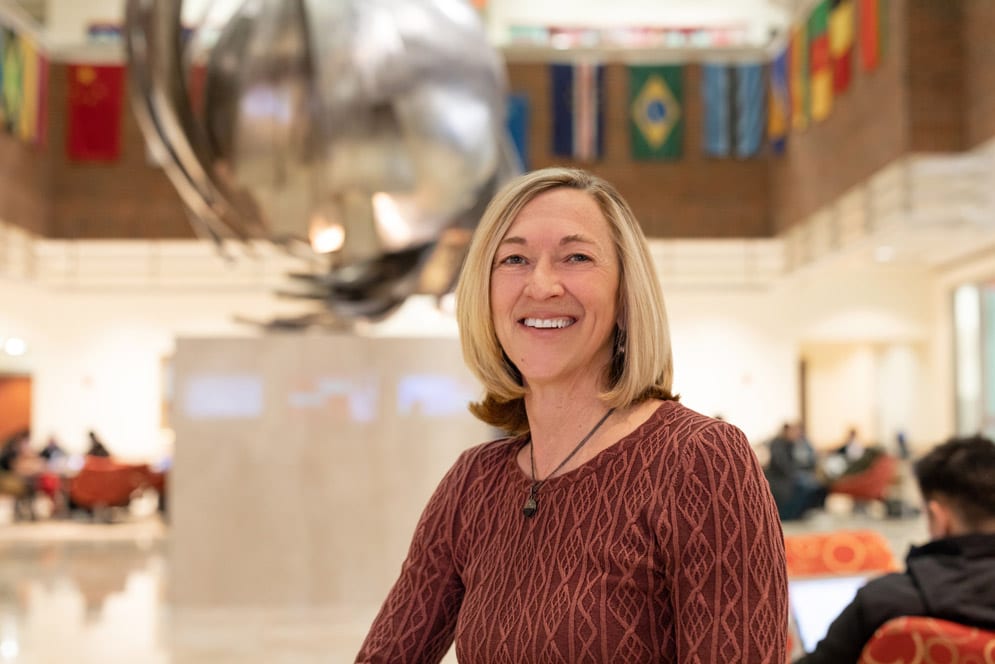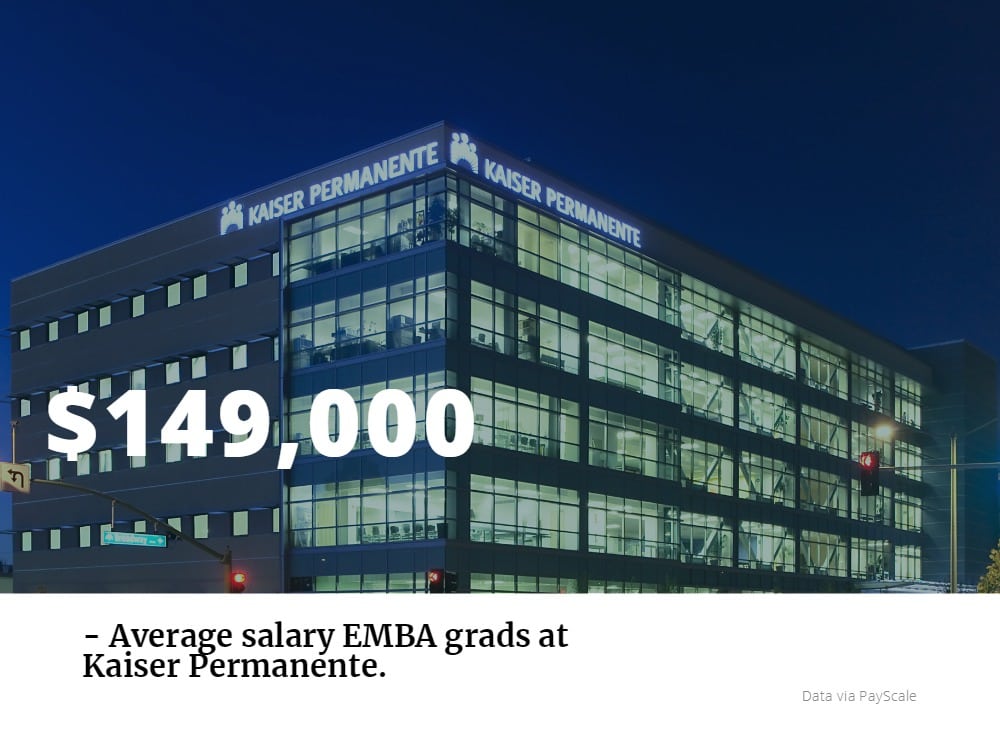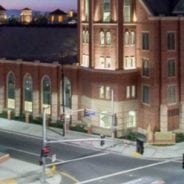Search results for career:
UCLA Hosts Worldwide Alumni, Startups, and More – Los Angeles News
It’s Friday! Let’s dig into the most recent news coming out of the Los Angeles metro from the past week that isn’t about the Lakers or Dodgers.
Worldwide Welcome Weeks – UCLA Anderson
UCLA Anderson celebrates its annual ‘Worldwide Welcome Weeks’ this month with events designed to introduce new alumni to their regional chapters or affinity groups, and engage them with leaders and thinkers in their home cities.
Members gained valuable insight with behind the scenes tours of successful businesses along with more informal meet-ups with fellow graduates.
Here in the states, alumni networks gathered in such cities as San Diego, Irvine, Marina del Rey, Portland, and New York City for events ranging from a tour of Petco stadium to an exploration into the present and future of blockchain technology.
Internationally, students met in Madrid to discuss the future of sustainable strategies in business, and in Sydney and Shanghai for happy hours. Alumni in Vancouver got the chance to give back with a day of service at Quest Food Exchange.

For more on each regional event, including photos, please visit UCLA Anderson’s news page.
Life is a Startup – USC Marshall
Professor Noam Wasserman of the USC Marshall School of Business recently published his book, Life Is a Startup: What Founders Can Teach us About Making Choices and Managing Change, from Stanford University Press.
Wasserman’s previous book, The Founder’s Dilemmas: Anticipating and Avoiding the Pitfalls That Can Sink a Startup, landed at a number one spot on Amazon’s bestseller list in the management genre. Wasserman also received the Academy of Management’s Impact on Practice award.
Formerly a professor at Harvard Business School, Wasserman has over the course of his career studied founders of startups to discover not only their common characteristics, but also how their personal and creative lives evolved over the course of their careers.
In a recent profile with USC Marshall Wasserman poses the question, “How do we prevent our fear of failure from torpedoing our making life changes? How can we gain knowledge and motivation from our failures rather than having them stop us in our tracks?”
On the flip side are the perils of success. You reach your dream, and then all sorts of challenges are introduced. Your success has actually heightened a bunch of problems for you. Planning ahead for the perils of success is key to being able to have them be true successes.
Life is a Startup is Wasserman’s exploration of how lessons learned during the startup of successful ventures can be applied to life experiences as well, particularly in times of difficulty or change. You can read the rest of the USC Marshall profile of the author and professor here.
24th Annual Economic Forecast – Mihaylo College of Business and Economics
In partnership with the Orange County Business Council (OCBC) and U.S. Bank, the Mihaylo College of Business and Economics‘ Woods Center for Economic Analysis will host its 24th Annual Economic Forecast.
Examining the three-year outlook for Orange County, Southern California, and also the domestic and global economies, the forecast promises to deliver vital information from leading academic and business professionals in the region.
Home prices, the unemployment rate, the general outlook on current economic conditions for business managers will be among the topics of discussion. Opening talks will be given by Provost Emeritus Anil Puri, former dean of Mihaylo College, and Associate Professor of Economics Mira Farka, a former senior economist at Deutsche Bank.
Other speakers include Lucy Dunn, president and CEO of the OCBC and former director of the California Department of Housing and Community Development, and Michael Camuñez, president, CEO and co-founder of strategic consulting firm Monarch Global Strategies LLC.
Register for the event today, which will be held at the Hotel Irvine on Thursday, October 25, 2018.
Finding The Best Affordable Full-Time MBA Programs
Earning an MBA is a great way to ensure some level of financial security in the future. However, if earning the degree leaves you with mountains of debt, that security can start to seem like a pipe dream. Fortunately, there are business schools that provide some of the best affordable full-time MBA programs in the country.
Analyzing the full-time MBA rankings from U.S. News & World Report, we outline ten of the best MBA programs throughout the country that don’t come with the hefty price tag. Check out the ten programs that cost less than $25,000 per semester below.
The Best Affordable Full-Time MBA Programs

The D’Amore-McKim School of Business at Northeastern University charges $1,600 per credit for their 55-credit program. The cost comes to about $22,000 per semester, which is not bad considering the average starting salary for recent grads is $88,000. The Boston school also offers its students a corporate residency while pursuing their degree, which helps alleviate financial pressure. The average salary for the Corporate Residencies was a respectable $32.52 per hour in 2018. Moreover, 91 percent of MBAs receive job offers within three months of graduation. Students with an interest in international business can participate in the Global Consulting Project or International Field Study.

At $11,855 per semester, going to La Salle University allows students to earn their MBAs without breaking the bank. The length of the program varies depending on a student’s previous credits and scheduling choices. Students who majored or minored in business can complete their degree in 12 months, whereas students without a business major or minor may take up to 24 months. Options for specialization include: accounting, business systems and analytics, finance, general business administration, management, and marketing.
Despite the reasonable price tag, La Salle grads have gone on to work high-level positions at well-known companies like Deloitte LLP and Morgan Chase.

The University of Colorado, Boulder Leeds School of Business ranks 65th overall among the best full-time MBA programs on U.S. News, and has a welcoming price tag to back it up. For in-state residents, the program is only $900 per credit ($1,200 for out-of-state residents). Over the course of 55 credits, this comes to just $49,500 for in-state residents over the entire two years of the program: $24,750 per year.
Leeds emphasizes entrepreneurship and a global outlook. The degree electives encourage students to concentrate on finance, marketing, management, or systems-operations. Students can complement this “functional focus” with a more tailored specialization like entrepreneurship, real estate, or sustainability. MBAs are not limited to MBA courses, as the program allows them to take up to four electives in other schools at CU Boulder. Additionally, students earning their MBA in Sustainability have the opportunity to take courses in University of Colorado’s Environmental Studies, Engineering, and Law Schools.

Upstate New Yorkers will be pleased to learn that the Binghamton University School of Management costs about $17,205 (with fees) per year for in-state residents. Non-residents pay about $26,745 (with fees) per year. Binghamton also does not require that entering MBAs have a business background, though they recommend a rudimentary knowledge of calculus, as well as strong skills in English and IT. The standard four-semester MBA is open to students from all undergrad majors. The school is currently 76th on the U.S. News list. Binghamton, NY may also be a strategic career-launch location, as the city made the Forbes list of “The Best Small Places For Business And Careers.”

Internships and opportunities to hobnob abound in the U.S. capital, making DC an excellent place to earn an MBA. However, with the cost of living on the rise, finding a relatively affordable school is key to maximizing return on investment. The cost of pursuing an MBA at the Kogod School of Business at American University comes out to about $20,923 per semester, for a total cost of $83,692. And, with a mean graduate salary of $84,725, it should not take grads long to see a respectable ROI. Kogod offers features like weekly Business Leadership Luncheons, wherein local business pioneers share their experiences and insights with students. Speakers have included senior executives from PayPal, IBM, and Marriott International. Graduates of the program have gone on to work at companies like Amazon, Deloitte, and Ford Motor Company.
YOU MAY ALSO LIKE: The Five Most Valuable Online MBAs

MBAs at the Argryros School of Business—the 79th overall school on the U.S. News list—pay $1,655 per credit. Which, for the 50-credit program, averages to about $20,687 per semester. The Orange County, CA school offers tracks in accounting, business analytics, entertainment and media management, entrepreneurship, finance, global business, marketing, and strategic management. The school also offers a variety of dual degrees, including an MBA/MFA in Film & TV Producing.

The University of San Diego School of Business Administration MBA currently costs $1,420 per credit. With a 56-credit requirement for the two-year program, the cost without fees comes to around $19,880 per semester. It is tied with the aforementioned Argyros School of Business at 79th overall on the U.S. News list of the country’s best business schools.
USD’s curriculum is based on four pillars: Leadership development; business function core; corporate social responsibility, sustainability, and ethics; integrative problem solving. For students with a global mindset, the International MBA has the same cost per credit, but requires only 44 credits.

In addition to being affordable, the Lerner College of Business is located in Delaware, where tax-free shopping makes the cost of living far less daunting. The Lerner MBA costs just $825 per credit for Delaware residents, and $1,000 per credit for those from out of state. This puts total cost per semester in a range from $9,075-$11,000.
Lerner MBAs can choose from a variety of concentrations, including (but not limited to): business analytics, international business, and sport management. Students can pursue a full-time, part-time, online, or hybrid MBA. Pursuing a hybrid of online and on-campus courses may also be fiscally helpful, since online credits tend to be more cost-effective.

The CSU College of Business offers several options for students pursuing an MBA. The school has a nationally renowned online MBA program, and also offers a Global Social and Sustainable Enterprise MBA, an Executive MBA, and an Evening MBA.
According to U.S. News, tuition for the full-time program is $757 per credit for in-state students and $1,557 per credit for out-of-state students. Given the huge cost cut for Colorado natives, CSU may be a prudent choice for residents of the state.

Students who are NYC-bound might consider applying to the Pace University Lubin School of Business. The total cost of an MBA education at Lubin education can vary, as different tracks require a different number of credits. However, at $1,267 per credit, the cost can be very manageable, particularly considering its prime spot in downtown Manhattan and all of the internship and job opportunities this location presents. Particularly for those with a bent toward accounting or finance, Lubin may be the perfect launching pad for a career in the big city. A substantial 92 percent of recent grads found jobs upon graduating.
New Yorker Cites Rotman Professor in Nobel Story – Toronto News
This week, representatives from Canada’s best business schools have utilized their skills and knowledge to make valuable contributions to the greater community. We’ve laid out the highlights below.
The Nobel Committee Honors The Economics of Market Failure – The New Yorker
A recent New Yorker article about the 2018 Nobel Prize in economics winners cites the blog of University of Toronto’s Rotman School of Management Professor Joshua Gans. Though the Nobel winners, Bill Nordhaus and Paul Romer, have not collaborated with one another, both have independently highlighted possible flaws and oversights of market economies. The article utilized Gans’s insight that the work of both winners provided a framework for economists to analyze and account for market failures.
According to thearticle, “In an idealized competitive market, prices equate the costs of producing goods with the benefits derived by consumers, and this equalizing mechanism insures that markets allocate resources and goods more efficiently than government diktat or other methods.”
Nordhaus’s research on fossil fuels and Romer’s research on goods that demonstrate advances in human knowledge suggest gaps in this narrative. Nordhaus’s work addressed that the cost of fossil fuels does not account for the damage incurred by their use, and consequent cost for future generations. This negative cost, importantly, is not accounted for in market transactions. Romer’s work explored positive spillover that is not accounted for in market transactions, such as advances in technology.
On news of Romer and Nordhaus’ awards, the Nobel Committee says:
“Both Romer and Nordhaus emphasize that the market economy, while a powerful engine of human development, has important imperfections and their contributions have thus offered insights into how government policy could potentially enhance our long-run welfare.”
You can read more about the Nobel Prize winners here.
Ryerson University Names Janice Fukakusa As Its New Chancellor – Newswire
Ryerson University has announced that Janice Fukakusa will take over as its Chancellor. Fukakusa, who received her MBA from York University’s Schulich School of Business, held senior roles at Royal Bank of Canada, including Chief Administrative Officer and Chief Financial Officer. She is currently on the board of not-for-profits like General Growth Properties, The Princess Margaret Cancer Foundation, and Cineplex. Until recently, Fukakusa was Chair of the Board of Governors for Ryerson. Fukakusa will be Ryerson’s first female Chancellor.
In her 31-year career, Fukakusa has received a variety of accolades celebrating her achievements. American Banker named her one of “The 25 Most Powerful Women In Banking” in 2016. She was also inducted into Canada’s Most Powerful Women Hall of Fame.
On news of her new role, Fukakusa says;
“I am honoured to be Ryerson’s new Chancellor, and look forward to driving the positive educational and societal changes for which the university has become known. We are leading the charge on so many important issues, and I am eager to work with students, faculty and staff in this new capacity to further advance the impressive progress that has been made to date.”
You can find out more about Fukakusa and her new role here.
Competition for Great Talent Has Become ‘Intense’ Axonify CEO Says – The Globe and Mail
The Globe and Mail profiled Carol Leaman, Chief Executive Officer of Axonify Inc. to highlight struggles facing tech employers. Leaman, whose company provides training modules for employees of corporations like Walmart and Bloomingdales, expressed that it has been increasingly difficult to woo qualified tech candidates. Amazon, Uber, and other global companies have been infiltrating the Ontario market, employing massive numbers of developers and IT personnel. Moreover, companies like Terminal have been helping U.S. firms hire Canadian developers.
/arc-anglerfish-tgam-prod-tgam.s3.amazonaws.com/public/YG6KDN4TFRGCBFLOFIYVYVVGOE.JPG)
Carol Leaman, president and CEO of Axonify / Photo via The Globe and Mail
According to Wilfrid Laurier University Professor of Organizational Human Behavior, Chet Robie, Leaman needs to offer stellar benefits and compensation in order to thrive.
“I would start working on making their compensation more competitive—and by doing that you don’t always have to increase base salary,” Robie says, alluding to benefits like work flexibility and upward mobility.
“What really resonates with this group of people doesn’t have to break the bank.”
Read more about competition in Canada’s tech market here.
Meet Boston Questrom’s First Female Dean, Susan Fournier
What does it take to be the first female dean at your business school? It takes a lot of experience, know-how, and pioneering research. That’s precisely why Boston University’s Questrom School of Business choose Susan Fournier to be the first female to lead the school. After 13 years as a marketing and management professor at BU and as a leading international expert on brand marketing, she was an obvious choice.
“She brings a remarkable tool kit of experience and knowledge to this role—and a genuine connection to the students, faculty, and staff, who are the heart of Questrom,” Jean Morrison, BU Provost and Chief Academic Officer, told BU Today. “I am excited to welcome her to this role and to follow her success as she guides Questrom to continued excellence as a leading global business school.”
Meet Susan Fournier

Susan Fournier, Questrom Professor in Management, will become the new dean of the Questrom School of Business, effective August 27. Fournier is an international expert in brand marketing / Photo by Dan Watkins
Dean Fournier is well known at Boston University and in the field of marketing. She’s credited with pioneering brand relationships; a marketing field that explores the emotional relationships between consumers and brands. Fournier has written two acclaimed books on branding as well as participating in numerous best-selling Harvard case studies. Most recently, Fournier’s soon-to-be-published paper examines the pitfalls of celebrity-based branding, focusing on Martha Stewart’s 14-year career.
Fournier’s research has received several awards including the JRC Long-Term Contribution Award from the Association for Consumer Research as well as Emerald Publishing’s Citation of Excellence Award for the top 50 articles in management. Other awards include being ranked among the Top 10 percent of authors on SSRN regarding all-time downloads. She also claims over 20,000 Google Scholar citations with five works garnering over 1,000 citations each.
On her new role, Fournier sees a strong correlation between research specialties and her position as dean. They’re both about relationships.
“I have deep knowledge in the psychology and sociology of relationships, how they develop, how they fall apart, what kind of flavors they come in,” she says. “The whole point of what I do is looking at why people connect with things, what role brands, products, organizations have for people in their lives. It’s not about selling a product, it’s about understanding people’s lives … and trying to help them.”
Beyond her research, Fournier is a celebrated professor with over 24 years of experience in academia covering the gambit from teaching undergraduate courses to teaching in MBA and Executive classrooms at such prestigious schools as Harvard Business School, Dartmouth College’s Tuck School of Business, and Questrom.
Before her new role as Dean, Fournier served as the Senior Associate Dean of Faculty & Research and Faculty Director of the Questrom MBA and Doctoral programs. During that time, she hired 22 tenure-track research faculty and 18 non-tenure track faculty across disciplines and departments.
Outside of academia, Fournier worked as a market research consultant for companies such as Polaroid Corp., Altria, IBM, Coca-Cola, and Chick-fil-A, according to the Boston Globe.
What To Expect
“I will be the champion of the Questrom School of Business brand,” Fournier tells BU Today. “I will be looking out to make sure all the decisions we make are on brand and are going to build our equity as a preeminent academic institution, from every person we hire to every course we develop to every institute we endow.”
Fournier has many exciting plans for Questrom. Not only will she work to increase interdisciplinary programming, but she’ll also ensure Questrom’s financial security and aligning coursework with student and employer needs. And her work has already begun breaking down outmoded silos in favor of interdisciplinary programming. She has helped eliminate boundaries in hiring, interfaces, and education in general.
“I’m trying to further establish our reputation as a preeminent research and teaching institution and develop our reputation for research that matters and faculty who care,” Fournier says. “We need strong partnerships with industry and organizations both to provide data for research that matters but also to be in partnership with us in the development of courses and projects that students would work on for hands-on learning. I have a stakeholder perspective from having worked and lived on the other side.”
Also, Fournier plans to focus on online and experiential learning, global partnerships, and practical and pragmatic research particularly in focus areas such as health, social impact, and digital technology. She sees these areas of the economy as important spaces to “double down” by hiring more faculty, building research institutes, and implementing new programs and concentrations.
Fournier told The Daily Free Press that she also plans to build more partnerships between faculty and research tracks in those areas. “We already have what I would consider to be a fantastic culture, but let’s further enable the collaborative culture, and in particular … interdisciplinary work and ideas and projects and partnerships,” she says.
High Expectations
As for what the Questrom School can expect its new dean? It’s an exciting time for the school, and University President Robert A. Brown gives her his enthusiastic support.
“Susan assumes the role of the dean of the Questrom School of Business during an exciting time for the school, for business education, and the University,” Brown told BU Today. “I look forward to working with her to continue the journey of increasing the quality and impact of the school’s education and research programs.”
And Fournier is excited as well, not just about being the first female dean at Questrom, but about being a great dean in general.
“We’ve never had a woman dean, and it’s definitely notable and wonderful,” Fournier told The Daily Free Press. “But I also would say that at the same time, I want to be known as a great dean, not first and foremost as a woman who happened to get a dean role. I’m really looking forward to the day when that doesn’t even have to be a question anymore.”
Find the original school press release about the Susan Fournier appointment here.
Part-Time MBA
Program Structure
The David Nazarian College of Business part-time MBA program offers classes Monday through Thursday evenings from 7 p.m. to 9:45 p.m. and occasional Saturdays. The MBA program is flexible as students typically take two courses per semester, but may reduce or accelerate their academic load commensurate with career and family demands. The program does not offer hybrid or online courses; all courses require in-person class meetings.
Curriculum
| Core MBA Curriculum | 24 units |
| Elective Courses | 6 units |
| Culminating Experience: MBA Consulting Project | 3 units |
| MBA Program Total | 33 units |
*For non-business undergraduates, an additional 15 units of coursework may be required in Foundation Courses. These courses may be waived if the student has completed equivalent coursework with grades of “C“ or better at a regionally accredited university.
Class Profile
CSUN students enrolled in fall of 2020 came from a variety of backgrounds. More than sixty-six percent of part-time students identified as female and more than 50% were hispanic. The average age of graduate students was 31.4.
Tuition, Scholarships, and Financial Aid
Graduate students at the David Nazarian College of Business pay $2,082 (not including additional fees) per semester if completing 6 or less credits. More than 6 credits per semester raises that number to $3,588.
Additionally, non-resident or international students are assessed an additional $396 per unit in addition to the aforementioned tuition and a $270.00 per unit graduate business professional fee.
Scholarship opportunities are offered through the university’s Financial Aid and Scholarships Office. Students may also apply for scholarships made available to them by the Nazarian College of Business and Economics.
Admissions
Applying to the MBA program is a two-step process. Applicants must first submit a University application on Cal State Apply before they proceed to the MBA Program application.
Step 1: Application to the university
1. Online application and the $55 (U.S.) application fee
2. Official transcript(s)
3. International students from non-English speaking countries only must submit official TOEFL, IELTS, Pearson English Test scores
Step 2: Application to the program
1. A professional résumé
2. Official GMAT/GRE score report (taken within the past 5 years)
3. Statement of Purpose
4. One to three Letters of Reference
GMAT/GRE waivers available. Please contact mba@csun.edu or (818) 677-2467 for more information.
Admissions Deadlines are as Follows:
| Semester | University and Program Application Opens | Department Application Deadline | GMAT/GRE Results Submission |
| Spring 2022 | August 1, 2021 | October 1, 2021 | October 1, 2021 |
| Fall 2022 | October 1, 2021 | May 1, 2022 | May 1, 2022 |
NYU Stern and Yale SOM Professors Awarded Nobel Prize in Economics
Faculty define a business school. Their research, teaching, mentorship, and influence have tremendous impact on the experience students have while there and often the careers they pursue once they graduate. From the curriculum they shape to the initiatives and centers they help run, faculty are vital. And it certainly never hurts when those faculty are also Nobel Prize winners.
This year, professors at two leading business schools were recognized with the 2018 Nobel Prize in Economic Sciences: Paul Romer at NYU Stern School of Business and William Nordhaus of Yale School of Management (SOM).
Nobel Prize Winners in Economics
At first glance, Romer and Nordhaus might seem unrelated. Romer has spent his career focusing on the nature of economic growth, seeking to answer the burning question, “Why do economies grow and how?” Nordhaus’ work, on the other hand, dives deep into the economic costs of environmental damage in an effort to gauge how much society would be willing to pay to avert climate change.
And yet both men have been hailed by Sveriges Riksbank, which awards the economics prize, as individuals known for “integrating innovation and climate with economic growth,” The Economist reports. They have also both influenced the way other economists think about critically important and complex systems.
Paul Romer
Paul Romer joined NYU Stern in 2010. Currently on leave, Romer is best known for founding the NYU Stern Urbanization Project in 2011, which conducts applied research on how policymakers in the developing world can use city growth to create economic opportunity and enact social reform.
In economics, Romer is known for developing the “endogenous growth model” and other approaches for spurring the market to generate new ideas. These models are based on the belief that the pace of growth and ways in which ideas are translated into growth depends on factors such as state support for research and development of intellectual-property protections. Hailed as a critical step toward understanding patterns of economic growth across the globe, his models highlight that the creation and spread of ideas is necessary for growth, but not alone adequate for initiating it.
In awarding Romer with the Nobel Price in Economics Sciences, the Swedish Academy cited his influence on “integrating technological innovations into long-run macroeconomic analysis.” (NYU Stern News)
William Nordhaus

Photography ©Mara Lavitt October 8, 2018 Evans Hall, Yale School of Management, 165 Whitney Ave. New Haven Yale University press conference presenting William Nordhaus, the Sterling Professor of Economics at Yale University. Nordhaus was awarded the 2018 Sveriges Riksbank Prize in Economic Sciences in Memory of Alfred Nobel.
Yale SOM Professor William Nordhaus has significantly impacted the teaching of economics at the school. A few years ago, he chaired the Yale Carbon Task Force, which looked at the market price of carbon-related products to determine the need for a market correction due to over-consumption or potential externalities. In particular, the task force delved into questions about distributing costs through organizations, tax effects of corrections, and connectivity problems and solutions.
As a professor, Nordhaus is best known for connecting people with important issues. He asks tough questions that make economics more accessible for everyday people and policymakers.
In economics specifically, he is best known for tackling complex systems surrounding climate change. His research has examined the economic costs of environmental damage and how much society would be willing to pay to avert them. As part of his work, he has combined mathematical descriptions of emissions with integrated assessment models, allowing him to project the impact of different global carbon emissions trajectories on global temperatures.
In awarding him the Nobel Prize in Economics, the Swedish Academy praised his work for “integrating climate change into long-run macroeconomic analysis.” (Yale SOM News)
Changing the Face of Economics
In the end, there’s no denying that both Romer and Nordhaus have blazed new trails in economics and humanity. Their names are synonymous with grappling with global issues we can’t afford not to understand.
This article on Nobel Prize winners has been edited and republished with permissions from Clear Admit.
The 5 Highest Paid Toronto Internships for MBAs
Toronto is Canada’s largest city and home to leading companies in both business and finance. There’s a particularly large concentration of banks as well as media companies, publishing firms, telecommunication, IT, and film production companies. There’s a little bit of everything in the city including top MBA programs such as McMaster University’s DeGroote School of Business, Ryerson University’s Ted Rogers School of Management, and York University’s Schulich School of Business.
But where should you look for paid Toronto internships? First, the industry you choose matters. According to the 2018 employment report from the University of Toronto’s Rotman School of Management, you should stick with three industries if you want to earn the most money: law/legal services ($18,000 per month), consulting ($6,332 per month), and financial ($5,623 per month).
Specifically, you might want to check out these five high paying internships in the Toronto metro.
The 5 Highest Paid Toronto Internships for MBAs

Sun Life Financial is a Canadian financial services company headquartered in Toronto. It is as one of the largest life insurance companies in the world, spanning back to 1865. The company pulls in around $28.5 billion in revenue each year, with over 30,000 employees worldwide.
MBA students looking for an MBA internship have multiple options. In particular, there are positions in finance, HR, and real estate. There are also co-op options in the Business Leaders Internship Program. This program gives students ten weeks to work in a number of functional areas to learn where they can be successful.
According to Glassdoor, interns can expect to earn:
- Salary: $3,166 – $4,333 Per Month

Ontario Power Generation, owned by the government of Ontario, is responsible for half of the electricity generation in the Province. The company uses nuclear, hydroelectric, wind, gas, and biomass electricity. The energy diversity helps pull in about $4.73 billion in revenue each year, employing 10,840 people.
For MBA students, the company offers both winter and summer internship opportunities. Interns analyze new business opportunities, pitch marketing, complete customer research, and perform business model development.
Glassdoor reveals that an average intern earns:
- Salary: $4,160 – $5,440 Per Month

BMO Financial Group is a Canadian multinational banking and financial services company. It’s one of the big five banks of Canada and is the fourth-largest by market capitalization and assets. In fact, it’s one of the ten largest banks in all of North America with $21.7 billion in revenue each year and 45,200 employees.
YOU MAY ALSO LIKE: What MBAs Should Know About BMO Financial
An MBA internship at BMO can cover a variety of job functions from financial modeling analyst to program management, investment banking, and capital markets. Through the program, students gain hands-on experience working with a team of seasoned professionals.
According to Glassdoor, an MBA intern can expect to earn:
- Salary: $3,000 – $4,160 Per Month

The Royal Bank of Canada (RBC) is a multinational financial services company and the largest bank in the country by market capitalization. It services over 16 million clients worldwide with personal banking services and products. 2017 estimates were around $40.6 billion in annual revenue with 79,000 employees.
RBC is home to a robust internship program with opportunities to work as a data scientist, business analyst, capital markets advisor, global equities, and more. Each internship program provides MBA students with the chance to work as a strategic advisor across a variety of industries from energy to health care, technology, real estate, media, and more.
As an intern, you can expect to earn a good salary according to Glassdoor:
- Salary: $4,833 – $5,166 Per Month

TD Securities is another Canadian investment bank and financial services company, offering advisory and capital market services. It is particularly known for providing expertise in corporate and investment banking, capital markets, and global transaction services. In 2016, TD Securities earned $3.03 billion in revenue with just 3,800 employees.
As far as internships for MBA students, there are many interesting 10-week options with business tracks in corporate and specialty banking as well as retail and product. These internships provide practical, hands-on experience, and can lead to participation in the 12-month MBA Associate Track Program post-graduation.
Based on intern salaries submitted to Glassdoor, MBA students can expect to earn:
- Salary: $3,250 – $4,166 Per Month
New MBA Jobs: PWC, Berkshire Hathaway, Credit Suisse, and More!
MBAs can always look forward to plenty of hot job opportunities once they graduate. Here’s a look at some of this week’s best new MBA jobs at respected firms like PWC, Berkshire Hathaway, Credit Suisse, Jane Street, and Chevron. Learn more about these open positions and apply today! Continue reading…
5 Questions With University of Georgia Admissions
In the newest installment of the MetromBA “5 Questions” series, we speak with Patricia D. Zettek, Ph.D., Director of the Full-Time MBA Career Management Center at the University of Georgia Terry College of Business, and Deirdre Kane, Director of Full-Time MBA Admissions about the UGA experience, Southern culture, and more.
What is something unique about the Terry College of Business MBA experience that people may not expect?
“Candidates to our program are most often surprised by three main things:
1.) Our flexible curriculum
2.) Our personalized and customized approach to supporting our students, academically and professionally
3.) Our welcoming and diverse program culture.
We have years of experience and the strength and size of our alumni network (310,000 and counting) to support our students in being successful while in the program and after they graduate. Our career management staff knows our students well and this one-on-one attention makes a big difference by the end of the program. Students learn and practice skills they need to land their next job or internship, and also to manage their careers throughout their lives. Faculty get to know the students, and truly take an interest in their success.”
What kind of student is the ideal Terry College of Business MBA?
“We look for humility, self-awareness and the willingness to learn new things about themselves—people who have experienced a setback or two—and learned from it. The ideal candidate for the Georgia MBA program has more than just the great test scores and GPAs sought by all full-time MBA programs, we look for the students that demonstrate a roll up the sleeves and get things done attitude. These are the people who do well here.”
What do you find business school applicants often overlook during the pre-MBA process?
“I think some people limit their choices by looking only at certain things, rather than the whole picture. They may focus tightly on one factor—school rank, tuition cost, employer relationships, average salary—rather than fully thinking through what they want and need from their MBA experience. Visiting campuses, talking to current students and meeting members of the staff could offer a very different view than the one that takes into account only one or two factors. MBA programs vary widely and there is not a one-size-fits-all experience. Find a few that fit your needs and go after them.”

“We look for humility, self-awareness and the willingness to learn new things about themselves—people who have experienced a setback or two—and learned from it” – Patricia D. Zettek, Ph.D. and Deirdre Kane
What do you find most business schools are lacking?
“Lacking is a pretty strong word. I consider business school an excellent investment in a candidate’s future. I understand why you might ask though, because if you listen to the media, the MBA has been dying out since the 1940s, but that’s just not true! There continues to be a need for professionals trained to understand the complexities of our business environment and committed to doing things right. Overall MBA programs and program staff are committed to the success of their students and genuinely interested in providing their students with the best experience and the best opportunities.”
What is your favorite restaurant near UGA?
“I think Athens is one of the South’s most underrated food cities. We’re known for music and football, but not until recently have we been noticed for our food scene. Thanks to chefs like Hugh Acheson, who calls Athens home, we have many farm to table gems, like Last Resort Grill, The National, home.made, and Heirloom Café. And everyone should check out Weaver D’s, Ted’s Most Best, Clocked, The Grit, Taziki’s, and Viva Argentine! The list is long and there is something for everyone!”

Southern-inspired specialties are abound in Athens, Georgia, including at home.made, founded by New Orleans-born chef Mimi Maumus – Photo via homemadeathens.com
For more information on the UGA Terry MBA admissions, click here.
The Best MBA Internships: Midwest
The Midwest is a great place to live. Not only is it among the friendliest places in the U.S., but it’s home to some top-rated MBA programs including the University of Chicago’s Booth School of Business, Northwestern University’s Kellogg School of Management, the University of Michigan Ross School of Business, and Indiana University’s Kelly School of Business.
So, with all these great schools in the area, the question is, where should you look for your MBA internship in the Midwest?
Below, we’ve highlighted 14 of the best MBA internships spread out over the cities of Chicago, Milwaukee, Cleveland, St. Louis, and Minneapolis.

When it comes to the Midwest, Chicago is the foregone epicenter. And there’s no doubt that it’s a great city for internships with many top companies. Chicago is home to nearly 40 Fortune 500 companies while also being considered the financial and cultural hub of the area.
So, where should you look for an internship in Chicago? There are many options:
- McKinsey & Company: McKinsey is known for recruiting from a variety of Midwest schools, including Chicago Booth, Northwestern Kellogg, Indiana University Kelley, and Carnegie Mellon Tepper. In fact, last year McKinsey & Co hired 48 employees from Booth. This accounts for nearly 10 percent of the 2017 Booth MBA class.
- United Airlines: United Airlines is headquartered in Chicago, IL and has a wide variety of MBA internship opportunities available in the city. There are opportunities in marketing, financial planning and analysis, HR, legal, corporate and government affairs, and more.
- Google: For an internship with Google in the Midwest, then Chicago is where you need to be. The Google internship program has openings for students interested in business strategy, finance, hardware, people operations, product management, and more.

As the largest city in Wisconsin and the fifth largest city in the Midwest, Milwaukee is another great location for MBA internships. The city is known for manufacturing and service companies and is home to six Fortune 500 companies. In particular, the city is known for having a large number of financial service firms and health care opportunities.
In terms of internships in the city, you should keep your eye on these companies:
- U.S. Bank: An internship at U.S. Bank is a great choice if you’re looking for the opportunity to work for the fifth largest bank in the U.S. There are opportunities to intern in distributed database administration, fund services, product management, private capital management, lending services, and more.
- Northwestern Mutual: Headquartered in the city, Northwestern Mutual is home to many MBA-level internships. Students can intern in public investments, analytics, strategic sourcing, and more.
- SC Johnson: In Racine, WI, just outside of Milwaukee, MBA students can find an internship opportunity at SC Johnson. There are openings in marketing, finance, sales, research and development, manufacturing, and IT. It’s an ideal company for those interested in a career in manufacturing.

Cleveland, Ohio home to manufacturing, financial services, healthcare, and biomedical companies. Many top-rated companies call the city home including NACCO Industries, Sherwin-Williams, Applied Industrial Technologies, and KeyCorp. NASA also maintains a facility in Cleveland.
For internship opportunities in the area, look to:
- Eaton: The Eaton MBA internship program is ideal for global MBA students who are interested in the energy industry. Eaton is a $20.4 billion company with 95,000 employees around the world with MBA internships in supply chain management, human resources, and more.
- Nestle: Located in Solon, OH, just outside of Cleveland, Nestlé has an MBA internship program for students interested in marketing or brand management. Internships get the opportunity to work with the company’s global portfolio of more than 2,000 leading brands.
- KeyCorp: Headquartered in Cleveland, KeyCorp is one of the nation’s largest bank-based financial services companies with more than $134.5 billion in assets. Every year, they high MBA summer associates in investment banking

St. Louis is the cultural and economic epicenter of Missouri. As the 19th largest city in the U.S., it is considered a major economical center for service, manufacturing, trade, and tourism. The metro area is home to many major corporations including Anheuser-Busch, Boeing Defense, Energizer, Panera, Enterprise, Edward Jones, and Purina. In fact, nine Fortune 500 companies call the city home.
Top MBA internships in St. Louis include:
- Monsanto: The beleaguered Monsanto was recently acquired by Bayer to strengthen its agricultural division. The MBA internship is designed for individuals interested in digital strategy and innovation.
- Emerson: The U.S. MBA leadership program at Emerson is designed for students interested in marketing, operations, supply chain, strategy, HR, financial, or business development. Each year, the company interviews more than 400 MBA candidates to fill their roles.
- Ameren Corp: As a leader in energy, the Ameren MBA internship is ideal for candidates interested in providing new solutions to tomorrow’s energy needs. MBAs interested in environmental policy and sustainability are preferred.

Minneapolis is the larger of the Twin Cities and the 16th largest metro area in the U.S. Recognized as a global city, the economy is known for business, medicine, sports, manufacturing, and research. Five Fortune 500 companies call Minneapolis their home including Target, U.S. Bancorp, Xcel Energy, Ameriprise Financial, and Thrivent Financial.
The best MBA internships in the area include:
- Target: The Target Arrows Leadership Development Program is designed for MBA students interested in being a part of Target’s global supply chain and logistics. It’s ideal for individuals interested in operations.
- S. Bank: Headquartered in the city, U.S. Bank is home to a ten-week competitive internship for students interested in retail payment solutions, enterprise strategy, lending services, performance engineering, and more. Here’s an example of the ad for a product management intern.
Ivey Launches New Academy, and More – Toronto News
Toronto’s business schools have seen exciting developments this week. We’ve laid out the highlights below.
Ivey Launches Full-Service Academy to Boost Business Education – Financial Post
Western University Canada’s Ivey School of Business recently launched The Ivey Academy, which, according to News@Ivey, “blends top-ranked university-based executive education with strategic design, talent assessment and leadership coaching to create the first of its kind executive education experience in Canada.” Some features of the academy include: Instructional design and advisory services, talent assessments, and leadership coaches.
Mark Healey, Executive Director of the Ivey Academy, says:
“There’s been a gap in Canada’s learning and development market, with companies typically engaging multiple vendors to deliver competency assessments, learning modules, training content and executive coaching. Combining all aspets of learning with independent expertise across the development journey, we are able to deliver sustained behavior change, not just knowledge transfer, and stronger retention and succession pipelines for organizations.”
You can learn more about the recently launched The Ivey Academy here.
Why Likeability Gets You Hired and Promoted – The Globe and Mail
Dan Richards, Professor at the University of Toronto’s Rotman School of Management and author of Getting Clients, Keeping Clients, recently wrote a piece for The Globe and Mail in which he discussed what qualities employers respond to.
First, Richards listed off the more standard characteristics employers appreciate, “the demonstrated ability to produce results, a strong work ethic and being a team player,” but he went on to discuss a trait people rarely list on their resumes: likeability.
Richards cites a study, which finds that when candidates are comparable in every objective area, the more likeable one will get the job a staggering 90 percent of the time. According to The Likeability Factor, it is a skill, and can improve with attention to: “Being seen as friendly, connecting over shared interests, demonstrating empathy, and being genuine.”
You can read more from Richards’ Globe and Mail entry here.
The Top 10 Women in L&D, Serious Games and Virtual Reality – LinkedIn
Dr. Deborah Fels, Professor at the Ryerson University’s Ted Rogers School of Management, was named one of the top 10 women in gaming, according to David Chadross, Ph.D. Fels has helped make strides in terms of accessibility of media and technology, including co-creating TerpTube, “a signed language mentoring management system.”
Chadross says:
“Deb runs entirely gamified courses and has done more work in the field of user experience then anyone I have met.”
The article also mentions fellow Ryerson professor, Naza Djafarova, Director of Digital Learning. Fels praises her increasing the revenue of her apartment my $3 million in just a year, spearheading the first large scale conference on serious games.
You can check out the rest of the list here.
New York 1-Year MBA Programs

Check out some of the best MBA programs you can find in the New York City metro that only take around 12 months to complete below.
Please note information is provided below the school name. Click on a program profile below to see if you meet the eligibility requirements for that program.
How Online MBAs Use Technology to Enable Authentic Connections
Sponsored Content
Technology has dramatically blurred the line between the digital and offline worlds; we can do almost anything online these days, ranging from ordering groceries to exploring Africa to attending college. However, one of the points of debate across nearly all fields is how the online experience compares to the parallel offline one; this has been especially true in online degree programs: Can online degrees provide the same value as their face-to-face counterparts?
The challenge of engaging and preparing students is two-fold for online degree programs. They need to cover the same key topics and transfer the same volume of knowledge as their on-ground counterparts. However, another part of the attraction of top MBA programs is that they not only develop students’ business acumen, they facilitate long-lasting connections that can lead to career opportunities and professional connections. That level of engagement presents a much bigger obstacle than catching someone’s attention long enough to complete a simple e-commerce transaction.
Technology in the Online Classroom: Two Major Lessons Learned
One of the things that makes a great online MBA successful is technology. Of course, if it were just an issue of investing in the latest and greatest tech solutions, every university would have successful digital learning programs. Further complicating things is the boom in technology built to solve this problem; which solution is best for the online classroom, and which will help build skills that will carry over into students’ careers.

After looking at some of the technology decisions at the University of Southern California’s Online MBA program, we found two major lessons for how to be successful with the kind of engagement these programs need to facilitate.
1. Innovate With Purpose
It’s easy to see the concerns over rapid technology evolution, whether you consider this 2015 New York Times article about innovation happening too quickly for businesses to keep up, or William Smith’s Morley, in which he wrote that widely available news and faster travel options would destroy relaxation as we know it, in 1886.
The technology we use will always be changing, whether it’s 1886 or 2186. One of the things that is hard to admit, though, is that the thinkers who said it would be impossible to keep up were right. Particularly at an organizational level, it really is impossible to stay current with every technology innovation that emerges.
The difference between success and failure—in the virtual classroom and in global business—is how they adapt new technologies to their environments.
One example of this in action comes from the University of Southern California’s Online MBA program. There are countless options for encouraging deeper collaboration and facilitating connections in an online setting, including a growing list of business collaboration tools as well as universities who opt to build their own social collaboration platforms. Sometimes, though, the answer is much simpler.
One of the things that stood out from USC’s Online MBA is that, in addition to the classroom sessions and videoconferencing, students chat and connect over WhatsApp. One of the biggest lessons from this experience is the fact that, sometimes, the best solution for a given problem is something students or employees are already using; it just needs to be embraced in a way that supports desired outcomes.
Why it Matters: Both businesses and universities may be reticent to allow important work and collaboration to exist outside of the platforms they control; and, there are certain instances (i.e. regulation) where allowing consumer-grade technology is a poor choice. However, embracing a student or employee-driven approach to collaboration is essential to making it work, particularly in a virtual setting. Rather than try to force students off the tool they’re comfortably using, USC can focus on smarter investments in other areas that are critical to online learning, like high quality video conferencing and learning management systems.
2. Outcomes First, Technology Second
It may seem counterintuitive at first, but the best strategies for utilizing technology don’t start by considering technology—they start by considering desired outcomes. If the goal is to facilitate the creation of real connections in a virtual space, using technology to enable this will need to feel natural and incorporate features that bring some of the same qualities of face-to-face interaction.
For online MBAs, there is a second and critical part to solving this challenge: Increasing students’ familiarity with tools that they will need to use in their professional lives.

For both businesses and higher education institutions, approaching this problem primarily from a technology perspective is the wrong approach. By thinking about desired outcomes, organizations can better guide their technology choices.
For example, with software for videoconferencing, there are myriad options. From a purely technical standpoint, many schools might first consider a solution like Blackboard Collaborate or Canvas’ built-in conference tools because so many already have Blackboard or Canvas for their Learning Management Systems.
These platforms may be enough from a functional standpoint, but, for developing true connections in an online MBA, user experience is an even more critical element of software used for video and teleconferencing. Considerations like these led USC’s Online MBA program to leverage Zoom, a dedicated communications platform, for conferencing in addition to the Canvas LMS for facilitating learning. Zoom lets students see the instructor, as well as their fellow classmates on live video, making it closer to face-to-face interaction than many alternatives. It’s also easier to schedule meetings on short notice with the ability to send calendar invites, offering similarity to the spontaneous brainstorming sessions that might happen in a classroom or office.
Why it Matters: The best solution for a given problem isn’t always the one that comes integrated with the rest of the software organizations already have. Especially for an online MBA, it’s also important to consider technology that has value beyond the classroom, as this will better equip students to succeed in their careers. The second component of this is to think about software that readily integrates with platforms people use in their daily lives anyway. Even if it is just the ability to send a meeting invite over Google Calendar, individual features can make the difference.
The Results: When Technology is Used Effectively
The biggest result of USC’s smart use of technology is that students can and do form real connections that lead to face-to-face interaction. For example, many students organize meet-ups in their area, so that those who live away from campus can still participate in the Online MBA community.
The deeper social connections, coupled with classroom learning and group discussions, also create unique opportunities that would not be as easily made without digital engagement. In USC’s case, one team of students in the recent cohort is planning to open their own business together.
The Bottom Line: Universities have historically struggled to keep pace with technology adoption. Regardless of whether a program is online, offered on-campus or uses a hybrid approach, though, the best MBA programs will stay ahead of the curve by considering outcomes first and avoiding the temptation to innovate without a clear purpose.
To learn more about the USC Marshall School of Business Online MBA, visit the Marshall website.
New MBA Jobs: BCG, Merck, Adobe and More
There are hot new MBA jobs that need to get filled each and every week all over the world. Here are a few new openings for entry level and advance positions at a range of companies, and don’t forget to check out the best new MBA jobs right here on MetroMBA every week.
Mihaylo Turns 10, USC Marshall Interviews, and More – Los Angeles News
It’s been a busy week, but we’ve caught up with a few of the Los Angeles business school stories you need to know.
USC Marshall Professor on the Economics of Migrant Populations – USC Marshall News & Events
USC Marshall Professor of Finance and Business Economics Sandra Rozo recently gathered a group of scholars for a session on an issue with global resonance—the refugee crisis.
Rozo organized the ‘Conference on the Impacts of Refugees in Hosting Economies’ in order to address the effects of forced migration upon the social, economic and political climates in various countries.
The transformation of certain Turkish communities that experienced an influx of Syrian refugees was just one of the positive impacts that Rozo and her colleagues presented. In a collaboration with fellow economics professors, Rozo explored how the resettlement of over 3 million Syrian refugees resulted in measurable change in the nation’s economy.
The oil and gas industries, for example, experienced growth as a result of increased usage. A notable increase in new business formation also arose from the migration, as Syrians new to the country saw opportunity in partnering with Turkish entrepreneurs. The researchers discovered that there was a marked positive effect on the construction, hotel and restaurant industries after the migration.
Rozo points that the positive outcomes of migration must be explored along with the sometimes enormous negatives. “The media tend to focus on the negative but the effects of displaced populations cannot be generalized in one way or another. We’re asking what the impacts are so we can ameliorate the negative and amplify the positive.”
Keynote speaker George Borjas of Harvard’s Kennedy School opened the conference, and Paolo Verme of the World Bank delivered the closing address.
You can read more on the research here.
Mihaylo College’s Landmark Home Turns Ten – Mihaylo News
As the largest accredited business school on the West Coast of the U.S., Mihaylo Business School at Cal State Fullerton needed a building that would make a statement. The university celebrates 10 years since the completion of this landmark structure for the Mihaylo College with alumni, donors, and staff on September 28, 2018.

Steven G. Mihaylo Hall, built in ’08 / Photo via business.fullerton.edu
In 2008, the school hired internationally celebrated firm HOK to design the state-of-the-art Steven G. Mihaylo Hall. The 195,000 square-feet, $89 million building contains 10,000 students and hundreds of faculty.
The shift in the U.S. economy has been vast since the late ’00s, and the growth of Mihaylo’s programs has followed a similar trajectory.
With sustainable design elements throughout the building that minimize environmental impact, Mihaylo Hall set a high standard for future building projects across campus. The Women’s Leadership Program, Mihaylo Career Services, and a state-of-the-art trading lab are just a few of the developments that grew forth after the building’s completion. Read more about the building and its decade of success here.
USC Marshall Welcomes 9 New Faculty – MetroMBA
MetroMBA recently spoke with several of the newest members of the USC Marshall faculty, joining the business school for 2018-19.
David Bacci, a new lecturer in the Department of Business Communication, says:
“Simply stated, my teaching philosophy is to train to students to be the types of great employees I would hire. I spent 10+ years in various industries and in management. In my experience, employers will teach their employees the technical skills required to do their jobs. But employers will not teach employees how to communicate; how to show up each day; how to engage with their boss and coworkers; and how to use their soft skills to add organizational value—employers simply expect people to have these skills already developed. Given this gap, I see my role as a professor to teach students how to use their communication skills to distinguish themselves as ‘great’ amongst a sea of ‘good.’”
You can read more from our recent interviews here.
Top MBA Recruiters: Kaiser Permanente
Finding a job post-MBA is at once exciting and challenging. There are thousands of new opportunities before you that you’ll have to choose between, and that can leave you feeling overwhelmed. What happens if you choose Career A over Career B? Which employer will offer an MBA graduate the best perks and potential? What industry offers the most job satisfaction?
While there’s no single right answer, there are a few employers that stand out for MBAs. These are companies that actively recruit MBAs and have programs in place to enhance the first job experience. One such top MBA recruiter is Kaiser Permanente.
About Kaiser Permanente
Kaiser Permanente is a consortium of for-profit and not-for-profit healthcare entities based in Oakland, California. Founded in 1945, the company is made up of three distinct interdependent groups: Kaiser Foundation Health Plan, Inc. (KFHP), Kaiser Foundation Hospitals, and Permanente Medical Groups. Currently, Kaiser operates in eight states and one district (Hawaii, Washington, Oregon, California, Colorado, Maryland, Virginia, Georgia, and Washington DC) and is the largest managed healthcare organization in the U.S.
- 11.7 million health plan members
- 208,975 employees
- 21,275 physicians and 54,072 nurses
- 39 medical centers
- 720 medical facilities
- $72.7 billion in revenue
- $3.8 billion in net income
What Is Kaiser Permanente Like for MBAs?
As the largest healthcare organization in the states, Kaiser Permanente has many unique opportunities available for MBA graduates. Not only does the company host internships each summer, but they also offer multiple early career opportunities lasting anywhere from six months to two years in a variety of areas from finance to marketing, sales, and administration.
The great part about choosing Kaiser Permanente as an MBA is that it means you don’t have to choose between a health insurance company and a hospital. Kaiser rolls together health plans, hospitals, and medical groups all in one, allowing MBAs to test their skills in a variety of settings. And hire they do, each year Kaiser hires hundreds of MBAs to fill positions throughout their organization.
As for working at Kaiser, 83 percent of employees say it’s a great place to work offering great challenges (86 percent), great atmosphere (89 percent), and great rewards (88 percent). Some of those rewards include unique benefits and perks such as KP WELL (KP Women Embracing Life and Leadership), which is a program to help women learn, connect, and develop their experience. Kaiser is also known for having a healthy workforce with multiple programs and tools for keeping their employees healthy in mind, body, and spirit.
It’s no wonder that Kaiser ranks 16th overall on the Great Places to Work list of the ‘Best Workplaces in Health Care and Biopharma in 2018,’ and ranked 43rd on the Great Places to Work list of the ‘Best Workplaces for Diversity in 2017.’
Among other benefits of working for Kaiser is a healthy salary. According to PayScale, MBAs can expect to earn around $108,000. However, salary varies based on experience and job with Executive MBAs earning $149,000, and MBAs with focuses in business administration earn $112,000.

Several of the most prominent business schools to offer a healthcare-focused MBA include:
- The Wharton School – Health Care Management MBA
- Columbia Business School – Health and Pharmaceutical Management MBA
- UCLA Anderson – Health Care Management MBA
The Kaiser Permanente Careers Search
MBAs should first consider a summer internship during on the Kaiser Permanente careers search. These internship programs are in a variety of locations, including California, Washington, and Oregon. In particular, MBAs should consider the Business Functions Internship, or Northwest Internship programs.
Both internships last 10 to 12 weeks (typically June through August) with recruiting from January to April. As interns, MBAs work on real-world projects and initiatives, like developing and analyzing financial data, supporting technology initiatives, and conducting market research. Areas of interest for the corporate internships include:
- Finance
- National facilities services
- Human resources
- Internal audit services
- Marketing
- Sales
- Service and administration
Join Kaiser Permanente’s University Talent Network to learn more.
After completing an internship, MBAs can join Kaiser in one of its many early-career opportunities programs. There are multiple programs available including:
- Marketing & Sales Program: One year working on marketing and sales strategy while also undergoing professional development through job shadowing, exposure to leadership, and educational experiences.
- Finance Fellowship Program: This two-year fellowship consists of three rotation assignments and is designed for new graduate candidates interested in a finance career.
- California Administrative Fellowship Program: This 12-or-24-month fellowship consists of two or three rotations at medical centers around Northern or Southern California.
What Does Kaiser Look for in MBA Candidates?
When hiring MBAs for a full-time position or internship opportunity, Kaiser looks for individuals with technical, business, and leadership skills. In particular, candidates with strong leadership, agility, quantitative, and communication skills are highly sought after. For consideration, you need a strong interest in the healthcare industry.
To get started, search for Kaiser Permanente careers here.
New MBA Jobs: Goldman Sachs, Walmart, Coca Cola, and More
A new week means a new rundown of the best new MBA jobs out there! This list features entry level positions and roles for seasoned vets, so there’s something for everyone here. Apply today and get your post-MBA career started right away!
What is Dell Looking for When it Comes to MBA Talent?
When considering jobs and internships, MBAs may reflect on the diverse set of skills and experience they’ve acquired. And few industries are witnessing a greater reflection of those diverse skills than tech.
Dell Technologies is one organization that has demonstrated a major commitment to hiring MBAs for their fresh knowledge and ideas, as evident in its 2020 ‘Legacy of Good’ Plan.


















